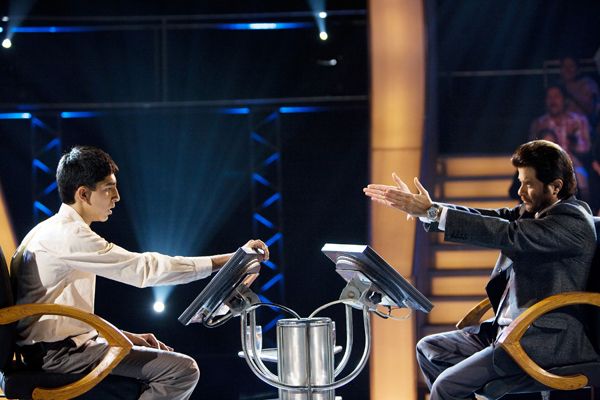
Flight of the Conchords
Season 2, Episode 2 - "The New Cup"
This episode was pretty hilarious and didn't feel at all stale in the way the first episode of the season sort of did. It had more of the bizarre nuances of Jermaine and Bret's apartment life, more band meetings at the consulate, more Mel/Doug weirdness, more of Eugene being creepy, and just about everything else that there was to love about the first season. Furthermore, both of the songs were instantly memorable with fantastic sequences to go along with them. The season premiere was certainly enjoyable, but this episode was clearly on a whole other level, maybe because it stuck much closer to the tried and true formula of the first season, which hopefully sticks around.
The plot of the episode is particularly preposterous, and involves Bret buying a new tea cup for $2.70, making their checking account $2.70 overdrawn, which leads to their power and water being shut off (evidently all of their utilities cost less than 2 dollars and 70 cents). Jermaine points out that they already have a "cup roster" to designate times for each of them to use their one shared tea cup, but alas, Bret is insistent on having his own. The wave of financial problems caused by the cup leads to Bret having to sell his guitar, and so Flight of the Concords goes on stage at a gig with only Jermaine actually playing and Bret air-guitaring and mimicking the sounds with his mouth. In probably the funniest scene of the episode, Murray trashes them in a review he writes for the New Zealand consulate newsletter, giving them 2 out of 100 stars, and saying that the song was barely audible with only the "dad guitar" playing (Murray doesn't know what a bass is).
After Bret tries unsuccessfully to raise money by selling super-straws,--big straws made by combining normal sized straws (for people who need to drink from really far away)--and a plan to get paid for giving Mel back massages ends equally unsuccessfully and far more creepily, Bret and Jermaine decide to become male prostitutes. Jermaine sells Bret on the idea with a musical sequence about how everyone's always checking out his junk, with lyrics such as "If you party with the party prince you get two complementary after dinner mints." The whole thing is done with this fast-motion effect that looks like something out of a Beastie Boys video, and is infinitely funnier than either of the two songs from the previous episode. Eugene realizes that Bret and Jermaine are "prostituting" in front of his building, and doesn't much care for it, but suggests that they could try the hotels down by the airport (something which he assures Jermaine he learned in a book--a normal book).
Jermaine heads down to the airport hotels, leaving Bret by himself with a band meeting with just him, Muarry, and Murray's new Nigerian friend that has let Murray in on his perfectly legitimate, and in no way a huge scam business investment. Murray and the Nigerian both agree that Jermaine prostituting himself is wrong, and so Bret rushes to save the day in another hilarious song in which Bret insists that Jermaine can "say no to being a man-ho." In what I think is a first for the series, Eugene is even included in on the music, as he has a little interlude on steel drums.
This episode was compltetely over the top and prepostorous, and I loved every minute of it. It showed me, much more than the season premiere did, that the show didn't run out of ideas in the first season. Jokes like the "cup roster" are much more in line with what the show was about in the early part of the first season, like in the first episode where Bret illustarates on the chalkboard when he's designated time to work on his secret project (his "hair helmet"). The two songs in the episode are both excellent, and are funny on their own merits, whereas, towards the end of the first season, it seemed like they were just sort of a way to be a bridge between scenes and weren't usually all that entertaining. I can't wait for next week now.


